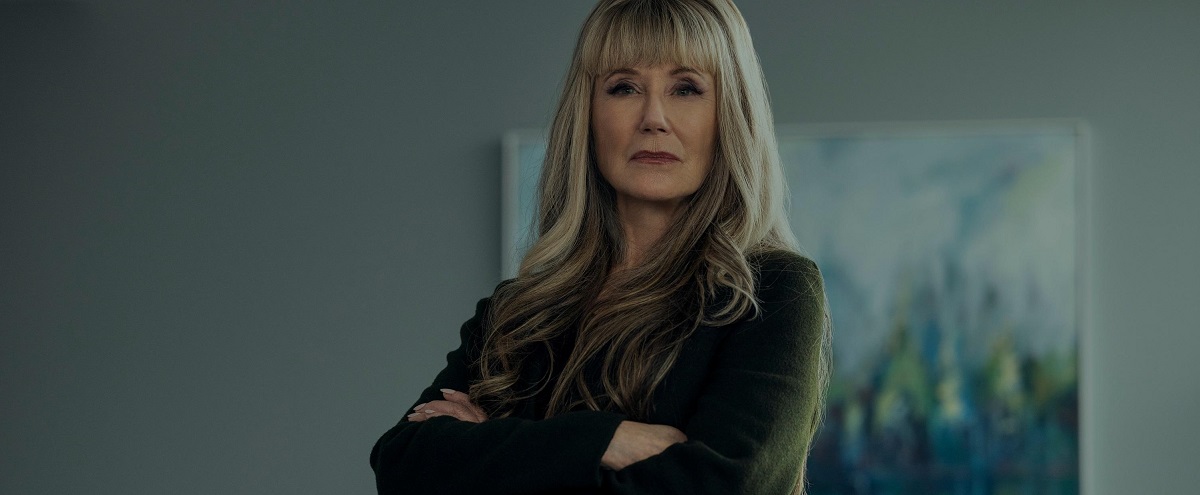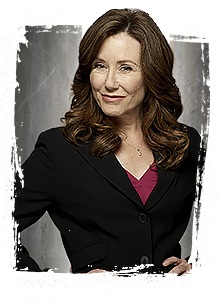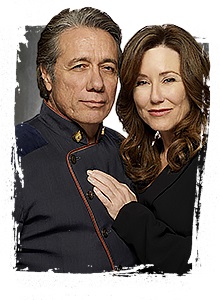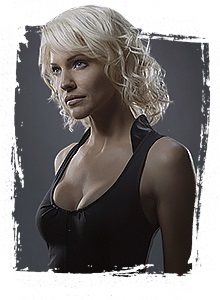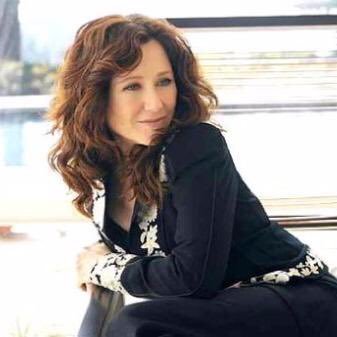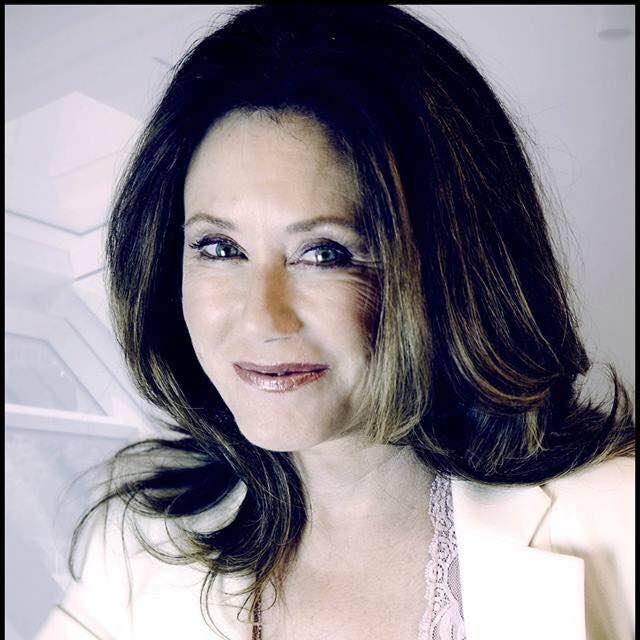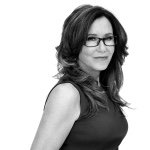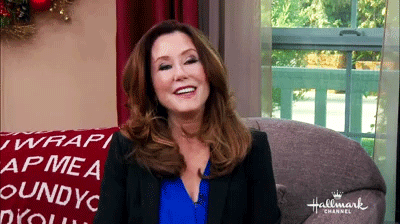
Emmy Roundtable: Drama actresses
Empty
June 3, 2009
This year’s Emmy actress contenders aren’t afraid to steal the spotlight.
The Hollywood Reporter: You’ve all worked in both film and television. What’s the biggest difference?
Anna Paquin: For HBO, we shoot single camera, so it doesn’t feel any different to shooting a (movie). The place that I have experienced the difference is you’re always with new material that you haven’t had for more than a few days, and you’re right at the edge of creating the character. In that sense, it’s a different entry into the creative moment. There’s not as much prep.
January Jones: We get the material literally a day or two before we shoot it. So, it’s very spontaneous. It works, but — unlike a film, where you have the script and you have the beginning and end and hopefully an arc — you don’t know where the character is going.
Rose Byrne: Sometimes we get (the script) on the day (of shooting). I go a bit mental, but you have to let it go.
Sigourney Weaver: (With) “Prayers for Bobby,” I did have the script for a month. One thing I said was, “You know, I’d love to work chronologically,” and they said “Absolutely.” That was the first thing to go! By the last week, the schedule was like, my son was dead, my son was alive, my son was dead, my son was alive. (Thanks to reading it well in advance), I kind of knew where I was.
Byrne: I had to do a whole scene opposite someone in a chair, and I had a gun and I was taunting them — and I didn’t know who was in the chair when we filmed it! But actually it was quite fun because it ended up being like an acting exercise.
THR: Do you have a lot of input into your characters’ dialogue?
Mary McDonnell: I had as much as they would allow me before they quieted me down!
Regina King: I started out on TV when I was a kid. So I never would have even dreamed that I could have spoken up. “I’m going to do my homework,” and that was pretty much it. So this is a new experience for me. I still feel kind of like that kid: I don’t want to get in trouble.
THR: Anna and Regina, you both started as child actors. What has been the key to transitioning?
Paquin: Um, luck? There really isn’t some sort of grand plan. It’s not like I had any idea what I was doing. Not getting really weird-looking helps.
King: I had a mother that was never a “set mom.” She kept me in public school for the whole five years I was on (NBC’s “227”). I ran track and I played sports. That kept me out of hanging with the other crowd, I guess.
Paquin: Me too. My parents were school teachers so I could not not get to school.
THR: Anna, what do you remember about your Oscar win (for 1993’s “The Piano,” at age 11)?
Paquin: I don’t even know if I really remember it. It’s like looking into a photo album.
THR: In school, what was the fallout?
Paquin: I was mortified. I just didn’t want to stand out. I was in public school; you don’t want to stick your head out. I was really shy; it kind of made me uncomfortable.
THR: When did you all start thinking you wanted to be actors?
Byrne: I started taking classes when I was about 8 in Australia. And then I got my first job when I was 13. And then I went to university in Sydney. But I was always drawn back.
Jones: I’m from South Dakota, so having a dream that grandiose wasn’t really feasible. And then in high school I was quite shy and I didn’t want to stick my neck out. I didn’t want to get made fun of. (Then) when I was 18, I wanted to experience other things. I mean, I had never been on an airplane, I had never seen an ocean. So I went to New York and was doing commercials and a little modeling and I decided I really loved the acting process and made my way to L.A. I just got really lucky with the people I met. My representatives are still my representatives. I was very trusting and naive and I was very fortunate to have been put in a position where I was taken care of.
THR: How did you feel when you went in for “Mad Men”?
Jones: I didn’t know what it was; I just knew that the writing was so amazing. My character wasn’t even in the pilot. And I auditioned for Peggy twice. They said, “Oh, it’s between you and one other girl” and the other girl gets it. “But there’s this other little role, she’s the wife, we don’t know if she’s going to be on the show, but do you want it?” “Yeah, but just promise me that I’m not going to sign a five-year contract and do nothing.” And it worked out.
Weaver: I’ve just been really lucky to jump around a lot. And I’m still very committed to the theater: My husband runs the Flea Theater in New York; it was my home for a good three or four years. It’s where I did the craziest things, and tried lots of stuff and sort of spread my wings. Like sharks, we have to keep moving before we die. I was lucky because I never had agents who tried to get me to do anything for money. If anything, they were overprotective: I was the one who wanted to do these crazy things. Like “Ghostbusters.” I had to convince (director) Ivan Reitman that I could be funny, and I did kind of transform into a dog in his office. He was taping it and later he said, “You know, you really shouldn’t do anything like that on film because it’s really grotesque.” He gave me the job anyway.
King: Everybody here, we’re all beautiful women, but the great thing about us is we’re character actors. We never really have relied on being pretty.
THR: TV is telling stories about real life and real people, while films don’t seem to do that as much anymore.
Weaver: The problem in the business is that (studios) want to put their resources toward these very big movies, which I think are male-dominated because that’s the way cartoons were written.
McDonnell: It’s part of the political climate as well. In the cable world, there’s a more progressive mindset in the ownership, in the management. Hopefully, with the new (Obama) administration, we can move the whole thing and open up the big screen again.
King: It’s unfortunate, because — for all of us — that was a wonderful thing about going to the movies and just being taken away for two hours and then being able to talk about it afterward over a piece of cake or something. You don’t have that anymore.
Weaver: That’s true. I’ve noticed, because we run this little theater, that in the last eight years, and actually since Sept. 11, people want to come together. They feel solace in the group. But movies, I don’t know, I feel like we could spruce them up. Make it special again.
THR: Mary, does it bother you that, as well-received as “Battlestar” has been, the audience is so small?
McDonnell: Oh absolutely. It frustrated all of us.
THR: What are other frustrations you all find doing television?
Paquin: I don’t have any. I love my job. I wanted this job, I fought for it. I was not right for it. I stalked Alan Ball and HBO until they gave it to me and I am so incredibly, incredibly happy.
THR: Why didn’t he want you?
Paquin: He didn’t not want me. But I was a pale, pasty girl trying to pass myself off as someone who could possibly in some version of reality be a blonde, tanned, Southern Hooters waitress. And I was like, literally, to my manager: “Please don’t send me out on this if they’re just going to say, ‘You’re not blonde,’ because it’ll break my heart.”
Jones: You have no idea how often that happens. I can dye my hair!
Paquin: One of my managers said, “Maybe you should go in with some highlights.” Highlights in my hair are not going to solve the problem. And I wanted it so bad, I could taste it. And I fought for it.
THR: Any other frustrations?
Jones: My only thing is just the time constraints. In a film you get like a day to do a scene. In TV we get, like, three takes. Plus I’m smoking herbal cigarettes like they’re going out of style.
Byrne: Is anybody really smoking on the show?
Jones: They’re herbal. They’re called Ecstasy. No tobacco, no nicotine but they’re so harsh.
THR: Do you ever ask to go back? Like, “I know we finished that scene, but I really want to do it again.”
McDonnell: I have. They said no. (Laughter) But I definitely asked several times after I watched dailies.
King: My vanity kicks in the times I watch dailies. I just want to see how that looked. Did they cover it up well?
Paquin: Like with the naked stuff. I’m like, “OK, OK, I’m really not watching anything else except this.”
THR: Is there a bigger upside or downside to being famous?
Weaver: I don’t think you know what fame is until it’s too late to do anything about it. As we said before, actors are shy. Our dream was to use the invisibility cloak and just observe human nature. Once you’re well-known, people are observing you. And I wish I was better at that. I just sort of want to do my thing and support some causes, but I just absolutely want to disappear and be a mother.
Paquin: The thing that I find really weird is that it’s the only job where large men with cameras and badges are allowed to literally chase you, in public, as a small female person. You’re wondering why actresses look sort of bunny-rabbit-eyed when people are taking their pictures. Well, if you were a block away from your house and suddenly you’re like, “Oh, there’s a photographer,” that’s weird. I find that scary. I just get intimidated.
THR: Do you all worry about staying employed?
McDonnell: We’re perpetually unemployed. I find myself consoling a lot of friends who aren’t actors, who lost their money or jobs. And I try to understand how to ride the wave.
Weaver: In other places around the world, they have cultures that really support the arts. There’s a lot of government support. Yes, it’s the business that’s in a very fractious state and it’s actors against studios and all this stuff and it’s really such a waste of time. Because I think the audiences need stories and we can really be useful. We can actually make a small difference, and I think they’re looking to us. That’s very exciting.
THR: What’s the worst story you’ve read about yourself in a tabloid?
Paquin: I was dating my brother once. There was a picture of me and him at a premiere!
Jones: You should never go to a premiere with your brother.
Paquin: I was 15! He was chaperoning!
McDonnell: I got an e-mail once that I married Gary Oldman. And I’ve been married to my husband for 25 years.
Weaver: There was a big magazine article about Roman Polanski and we were on the front because we were talking about “Death and the Maiden” just before we made the movie. Someone took a picture of us in some small cafe in Italy where we met, and Roman called me and said, “I’m going to sue these people and I want you to sue them with me.” And I said, “Roman, this is by far the most interesting thing that has ever been written about me!”
